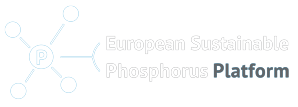Piattaforma Italiana del Fosforo 
A new two-year collaboration agreement has been signed between the ItalianMinistry of the Environment and Energy Security (MASE) and ENEA for the resumption of the activities of the Italian Phosphorus Platform (IPP), aiming to enhance national coordination and generate proposals to establish regulatory, economic, and market conditions that promote a secure and sustainable supply of critical raw materials, including phosphorus. As done in 2019, the Platform was organized in different working groups:
WG1 ‘Management and Promotion’, responsible for organizing thematic tables, work meetings, and national and international workshops; in particular, the collaboration with European Sustainable Phosphorus Platform (ESPP), of which the IPP is becoming a member, is highlighted;
WG2 ‘Technologies and Good Practices’, focused on P-recovery technologies: in 2019 Italian phosphorus fluxes are primarily linked to agriculture, and for recovery purposes, there is a strong focus on liquid and solid organic fractions from wastewater treatment, was emphasized; the future activities will update the technology catalogue, with the goal of examining the potential replicability of international technologies in Italy;
WG3 ‘Legislation’, that in 2019 has analyzed more than 90 legislations related to phosphorus at the European (including FPR, Sewage Sludge Directive, Urban Waste Water Treatment Directive, Waste Framework Directive), as well as at the Italian and regional levels; the WG will review these documents again and identify any new ones to propose solutions for the identified issues;
WG4 ‘Market’: the sectors showing in 2019 the highest growth and profitability were fertilizers, detergents, and metal coating; the main critical issues in the sector, hindering the closure of the phosphorus cycle and market development, were identified as the lack of specific regulation on end-of-waste and recovery, as well as a lack of public awareness regarding the sector; policy and market will be revised and updated over the next two years, and a feasibility study will be conducted to establish a national database on phosphorus, based on IPP stakeholder inputs, including those who recover it from secondary sources.
